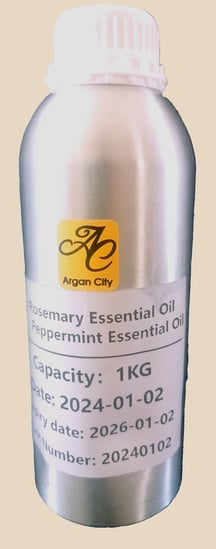

The Complexity of Essential Oil Extraction: A Subtle Balance Between Science and Nature
The extraction of essential oils, although centuries old, remains a complex process that requires a deep understanding of botany, chemistry, and physics. Each step, from the selection of the plant to obtaining the pure oil, is crucial and can significantly influence the final quality and yield.
The Diversity of Plants and Their Compounds
The first complexity lies in the diversity of aromatic plants and their compounds. Each species, or even each variety, has a unique chemical composition, with specific aromatic molecules and varying concentrations. Some plants, such as lavender or rosemary, are rich in essential oils, while others, such as rose or jasmine, contain only trace amounts. This diversity requires constant adaptation of extraction techniques.
Mastering Extraction Parameters
Each extraction method involves a multitude of parameters to be mastered: temperature, pressure, duration, solvents used... Even a slight variation can affect the quality of the essential oil. Too high a temperature can degrade the aromatic molecules, while insufficient extraction time can limit the yield. Mastering these parameters requires technical expertise and in-depth knowledge of the chemical reactions involved.
Preserving the Quality of the Essential Oil
Once extracted, the essential oil must be carefully preserved to maintain its quality and stability. Light, air, and heat are its main enemies, which can cause oxidation and degradation of aromatic molecules. Storage in opaque glass bottles, away from light and heat, is essential. The addition of natural antioxidants can also help extend its shelf life.
The Complexity of Analysis and Quality Control
Analyzing the chemical composition of essential oils is a complex process that requires sophisticated equipment and specialized expertise. Gas chromatography, coupled with mass spectrometry, allows for the identification and quantification of the different molecules present. Quality control is essential to ensure the purity and authenticity of essential oils and to prevent fraud and adulteration.
In conclusion, the extraction of essential oils is a complex process that requires a combination of traditional know-how, scientific expertise, and technological innovation. Mastering each step, from the cultivation of the plant to the analysis of the essential oil, is crucial to guarantee the quality, safety, and sustainability of this precious natural resource.
QUALITY OIL




The Guardian of Purity:
The Aluminum Bottle for Essential Oils
Essential oils, true concentrates of natural benefits, are fragile treasures that require optimal protection to preserve their precious properties. This is where the aluminum bottle comes in, a real bulwark against external aggressions.
Why choose aluminum?
Total Opacity: Light is the number one enemy of essential oils, altering their chemical composition and reducing their effectiveness. Aluminum, totally opaque, blocks light rays, thus preserving the integrity of your oils.
Perfect Sealing: The volatile aromatic compounds of essential oils tend to evaporate on contact with air, leading to a loss of aroma and therapeutic virtues. The airtight aluminum bottle prevents any evaporation, guaranteeing the freshness and power of your oils.
Chemical Neutrality: Aluminum is an inert material that does not interact with the components of essential oils, unlike some plastics that can alter their composition. This ensures that your oils remain pure and natural.
Strength and Durability: Lightweight and robust, the aluminum bottle is shock and handling resistant, ideal for transporting and long-term storage of your precious oils.
Generous Format: The one kilogram bottle is perfect for professionals or aromatherapy enthusiasts who regularly use essential oils. It allows you to store a large quantity of oil while ensuring its optimal conservation.
1. Hair Oil:
General term: This is a broad category encompassing any oil used for hair care purposes.
Ingredients: Can be a blend of natural oils, synthetic oils, silicones, fragrances, and other additives.
Purpose: Can serve various functions like moisturizing, smoothing, adding shine, or protecting hair from heat damage.
Quality: The quality and effectiveness can vary greatly depending on the specific ingredients and formulation.
2. Organic Hair Oil:
Natural origin: Derived from plants grown without synthetic pesticides, herbicides, or fertilizers.
Certification: Often certified by recognized organizations to ensure compliance with organic standards.
Ingredients: Primarily contains natural oils and botanical extracts, with minimal or no synthetic additives.
Benefits: Considered gentler on the hair and scalp, less likely to cause irritation or allergic reactions. May offer additional benefits due to the presence of natural antioxidants and vitamins.
3. 100% Pure Oil:
Single ingredient: Contains only one type of oil, with no additives or dilutions.
Purity: The oil is in its most concentrated and unadulterated form.
Uses: Can be used directly on hair or scalp, or blended with other oils or ingredients for customized hair care.
Caution: Some pure oils, especially essential oils, can be potent and may need to be diluted before use to avoid irritation.
Choosing the right one depends on your individual needs and preferences. If you prioritize natural ingredients and sustainability, organic hair oil is a good option. If you prefer a highly concentrated oil for specific hair concerns or DIY recipes, 100% pure oil might be suitable. However, always do a patch test before using any new oil on your hair or scalp.
Produits de qualité
Découvrez notre huile d'argan et autres huiles haut de gamme, certifiées pour leur qualité.
Huile d'argan pure


Obtenez de l'huile d'argan certifiée, parfaite pour vos besoins quotidiens et bien-être.




Qualité supérieure garantie
Nous nous engageons à fournir des produits authentiques et de la plus haute qualité.
Nos huiles sont soigneusement sélectionnées pour garantir une pureté et une efficacité exceptionnelles.
